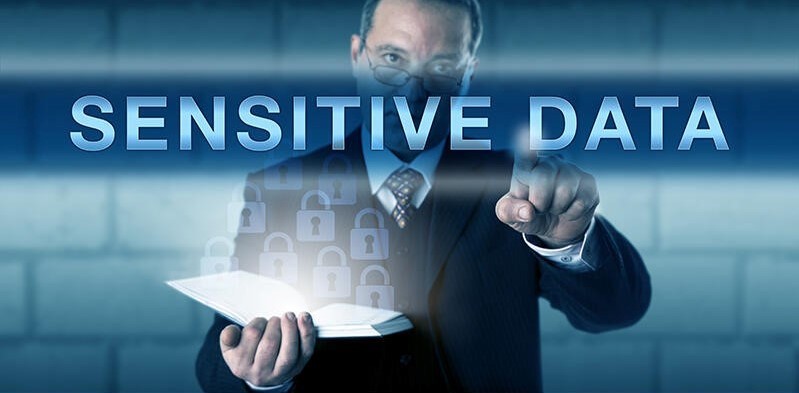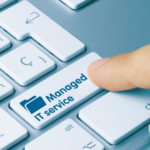In today’s digital age, correspondence has shifted from handwritten letters to electronic messages. From professional communication to personal chats, a significant part of our lives unfolds within the confines of our digital screens. However, with the convenience of instant messaging and email comes the perennial concern of security. Specifically, how can one ensure Email Data Security while transmitting sensitive information?
Sensitive information—like Personally Identifiable Information (PII)—is a prime target for cybercriminals. Whether it’s your social security number, home address, or bank account details, the repercussions of this data falling into the wrong hands can be catastrophic. This has ushered in the need for efficient strategies to protect our digital correspondence.
Here’s how you can step up your game in safeguarding sensitive information:
1. Recognize the Importance of Email Data Security
First and foremost, recognize that not all emails are created equal. Emails containing sensitive or confidential information require an additional layer of protection. Always be wary of unsolicited emails asking for personal details, as these can often be phishing attempts.
2. Use Advanced Encryption
Encryption ensures that only the intended recipient can decipher and read the email content. While most email services offer basic encryption, exploring options like end-to-end encryption for heightened Email Data Security is essential.
3. Adopt Reliable Tools to Detect and Redact PII
There’s a growing need for tools that can automatically detect and redact PII from digital correspondence. By identifying and masking these sensitive details, the risk of accidental exposure decreases significantly.
One such reliable service provider is Strac. With a strong presence in India, Strac offers services focusing on detecting and redacting PII. By leveraging sophisticated algorithms and techniques, Strac ensures that your emails and documents are scrubbed clean of potential data hazards before sending them out.
4. Educate and Train
Email Data Security is not just a technical concern; it’s also about user awareness. Encourage your colleagues, friends, and family to be vigilant. Regular training sessions on best practices, like recognizing phishing attempts and verifying sources before clicking links, can go a long way.
5. PII Handling Best Practices
Handling PII is a delicate process that requires careful attention. One should always:
– Limit the sharing of PII unless necessary.
– Store PII in secure environments, like encrypted folders or vaults.
– Regularly review and purge outdated or unnecessary PII.
Again, for individuals or businesses in India, Strac offers specialized PII Handling services. This ensures that your sensitive data is handled with the utmost care and complies with international data protection standards.
6. Secure Storage with Document Vault
Once you’ve sent or received sensitive information, you must consider where you store it. Traditional digital or physical folders may not offer the requisite security layers.
Like the one provided by Strac, a Document Vault offers an encrypted and secure environment for all your critical documents. It’s like a digital safety deposit box, ensuring your sensitive information remains inaccessible to unauthorized individuals.
7. Two-factor authentication (2FA)
Regarding Email Data Security, two-factor authentication provides an additional layer of protection beyond just the password. Requiring a second form of identification, be it a text message code or biometric confirmation, makes unauthorized access to your accounts considerably more challenging.
8. Regularly Update Software
Hackers are always on the lookout for vulnerabilities in outdated software. Ensure your email client, operating system, and security software are regularly updated. These updates often contain patches for any known security issues.
9. Monitor for Unusual Activity
Regularly check your sent items and login activity for unusual or unauthorized actions. Many email platforms notify users of unfamiliar login attempts, so always heed such alerts.
10. Use Secure Wi-Fi Connections
Always avoid checking sensitive emails when connected to public Wi-Fi networks, such as airports, cafes, or hotels. These networks are often unsecured and can be hotspots for cybercriminals looking to intercept data.
11. Backup Your Emails
Regular backups ensure that your emails can be restored even if there’s a security breach. Consider using cloud-based backup services that encrypt your data, offering dual benefits of recovery and security.
12. Limit Access on Shared Devices
If you access emails from shared or public computers, always ensure you log out after your session and precise any cached data. Limiting access to shared devices ensures that the next person using the computer cannot access your sensitive correspondence.
13. Partner with Specialized Security Providers
For businesses and individuals alike, partnering with specialized security providers who can offer tailored solutions for Email Data Security can be immensely beneficial. With their expertise, you get the peace of mind of knowing that your correspondence is under vigilant protection.
Conclusion
As our world becomes increasingly digitized, the need for robust Email Data Security measures becomes more and more paramount. While technology provides us with many conveniences, it’s essential to safeguard our digital correspondence.
By recognizing the importance of security, using advanced encryption, adopting tools like those provided by Strac, educating oneself, following PII Handling best practices, and securely storing documents in a Document Vault, one can significantly reduce the risks associated with digital communication.
In today’s age, where information is power, ensuring the safety and confidentiality of our data isn’t just a good practice—it’s a necessity. And with providers like Strac on our side, we’re not alone in this endeavor.








